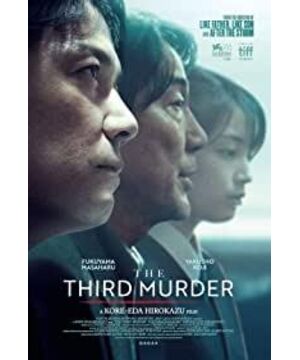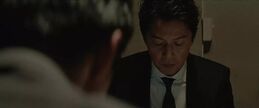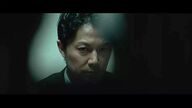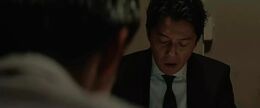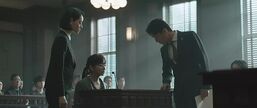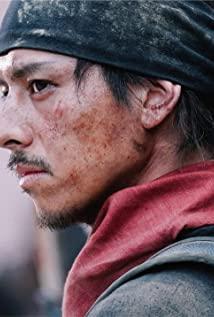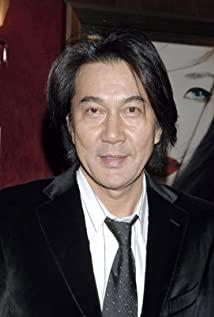Why is it called "The Third Suspect"? Degree, also translated as 次, means that the suspect in the play has three convictions for crimes. After watching this play, I thought about some issues about the evidence system such as the confession of suspects and witness testimony, the legal system such as the death penalty, and the legal profession such as lawyers, prosecutors, and judges. (Criminal prosecution work, here is the code, if there are any mistakes or deficiencies, please correct me!)
1. About the evidence
At the beginning of the play, the criminal behavior of the client Sanyu was shown - guiding the victim into the wilderness by the river, hitting him on the head with a wrench while he was on his back until he fell to the ground bleeding, pouring the gasoline he carried with him. to it and lit it with a lighter. Of course, this shot does not show the entire crime scene. With the addition of the back shots and the plot, the director deliberately hides the criminal behavior of a 13-year-old girl in a low position. Father's blood. However, the criminal suspect never confessed to anyone, and concealed it through other explanations, and in the end he was vague. For the first time, he denied murder, but due to the pressure of interrogation by the police and others, he confessed his guilt, gave up hope, and waited for the death penalty. With the intervention of the lawyer, his second confession was that he admitted the murder, but not for the purpose of robbery, but at the instigation of the victim's wife, in order to obtain a share of the insurance compensation, and provided a text message record of the deposit transfer between him and the victim's wife. However, this transfer was not a murder payment, but a hush-up fee for the victim's company's counterfeit food, so his wife dared not tell the truth but flatly denied it. The trial was postponed due to unclear identification of evidence. After the perpetrator learned of the conversation between the lawyer and the little girl, he guessed that the little girl had told her experience of being sexually assaulted by her father. This is a key point of the case, which can be used as the basis for the explanation of the motive of the crime, so that his actions are identified as vendetta, not robbery and murder, and escape from the death penalty, and the little girl also intends to withstand pressure from all parties to provide testimony. However, the suspect's third confession changed again, denying the murder and having not been to the crime scene. The purpose of this may be to protect the girl from having to testify and publish this past. The lawyer also gradually realized the truth, but also gave up the defense tactics and let the death sentence be sentenced in the case of re-revoking confessions, stealing wallets, entrusting murder, etc., and pleaded not guilty and shirk responsibility.
From the above, it can be felt that the confession of the criminal suspect is constantly changing and plausible. The evidence is also not conclusive, but for some reason, the lawyers adopted it and developed "court tactics" accordingly. The confession of a criminal suspect is highly subjective and can reflect the circumstances of the case that other evidence cannot reflect, but it is very likely to be false, and it is repetitive and unstable. can be concentrated in this case. Acting and filming can still be so realistic, and the real actors may be even more powerful than the actors. In general, I have a very deep understanding of the importance of evidence in litigation. "Without evidence, there is no right, and without rights, there is no remedy."
2. About the death penalty
I believe that there are many views on the death penalty in ancient and modern China and abroad. The class presentation of the last criminal law class was also the theme. And this drama made me intuitively feel the conflict between the death penalty and the abolition. Life and death, who should decide? Self, others or destiny? Law or Legal Practitioner? A judge in the film said, "There is a deep gulf between those who kill and those who do not. Whether it can be crossed is decided at birth." The lawyer said, "It has nothing to do with the will of man, life is determined by the Choose." The suspect said, "There is a kind of person in the world who is not born." It seems that they all point to an answer. Some people are born criminals, and the death penalty must be the last evaluation of his life. But I believe that although what the film conveys to us is all the helpless expressions, it also reveals the questioning of the death penalty and the yearning for finding a better way than the death penalty. "Vendetta instead of robbery and murder just because of last resort, there is a difference between death and immortality. The law is really incredible." Yes, why the law can decide whether a person dies or not, and why a person representing the will of the law can decide whether a person dies or not. Woolen cloth? For this middle-aged man who escaped his father's clutches for a little girl and fought against counterfeit food, for this middle-aged man who loves his daughter, birds, and simple peanut butter very much, can he just die? Can one side's words be accepted, and can one judge and decide whether a person is qualified to live? Maybe we all have the answer in our hearts, waiting for corroboration and realization.
Think about it from another angle, life is not completely out of your control. The criminal suspects in the film can change the direction of a lawsuit by fabricating and concealing the facts, with the well-intentioned purpose of protecting the little girl. So the death penalty can also be used for some purposes? The thought is still scary.
3. About legal professions
The film mainly shows the lawyer's position. What attitude should a lawyer have in such a case? Chongsheng's fellow lawyers believe that "in order to defend, there is no need to understand or find resonance, and it is not to make friends." However, Chongsheng, through various on-site investigations, inquiries and conversations, compares his heart to heart, and approaches the truth step by step. To the end, he still chooses to respect it. The principal, support his claim instead of choosing the best-effort option. A criminal lawyer, a person who defends criminals and dares to confront the prosecution, is very admirable. And the choice of lawyers in the film may be the best, maybe not. Living as a murderer may be more helpless and sad than dying. Of course, this is our imagination.
In it, Shigemori's father is the judge who tried a murder case committed by the criminal suspect Mitsumi. He said to lawyer Shigesheng, "Because the discretionary sentencing led to another death, I am reflecting on it." What does this reflecting mean? Should there be some kind of prejudice against murderers? Is a biased trial justified? At first glance, everyone will think that judges should not have personal biases and personal values, so that the trial can be fair and just. But in practice, judges are also human beings, and they are also influenced by public opinion, simple justice, and so on. Based on the criminal suspect's growth environment and growth experience, we can determine whether he is a person with a high probability of committing a crime, a high probability of repeat offenses, and a low probability of reform. But thinking this way, isn't it the same as the prosecution's thinking? The existence of the defense would be meaningless.
""Facts are the basis, and the law is the criterion." This is one of the basic principles of my country's criminal procedure law. Taking facts as the basis means that no matter what kind of litigation is carried out, objectively existing facts must be used as the fundamental basis for handling the case. Neither extortion of confessions by torture or subjective incrimination, nor subjective imagination, speculation, or unfounded reasoning or argument. According to the basis, the core is to emphasize evidence, investigation and research, and not to believe in confessions. Fact determination must be based on verified evidence, and the application of law must be based on verified facts. Taking the law as the criterion means that whether the people's court handles the case procedurally or substantively, it must take the legal provisions and other relevant provisions as the standard, and use the legal provisions as the criterion for evaluating the facts of the case that have been identified. A typical case of violating the principle of "taking facts as the basis and the law as the criterion" is the dozen or so unjust cases of the famous national She Xianglin style. In these typical cases, the main criminal facts are not clear, and the main criminal facts are not clear, and the major doubts are not eliminated. 』
There is an image metaphor in the film that deserves our consideration. Whether it's the prosecution or the defense, it's like "blind men touching the elephant" for a case, each exploring and understanding the case, and then deciding that what they have touched is the truth. As a neutral party, the judge may see only two extreme aspects, but this is already the most reasonable arrangement. No one is omnipotent except God. Although it should not be harshly criticized, I still want to say that since law practitioners have the "God skills" that determine the fate of life and death, please be careful.
View more about The Third Murder reviews


